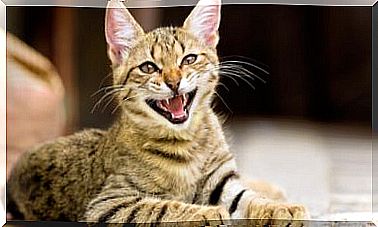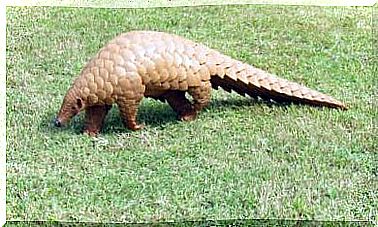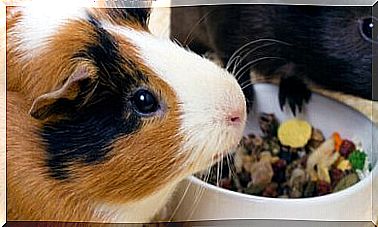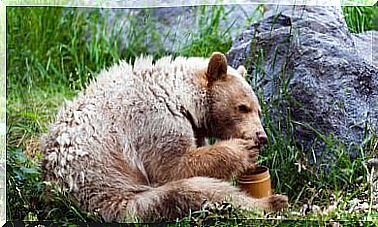How Cats Learn To Hunt
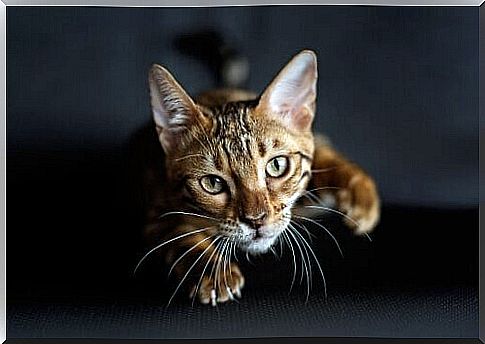
Wild cats instinctively hunt for food, but in the case of domestic cats, how do cats learn to hunt if it’s not a vital need for them? Discover how you can stimulate your natural instincts.
Teaching how to hunt: the main role of mommy cat
The mother of a domestic cat is the first to play a role in the development of a kitten’s hunting instinct. Kittens learn the basics of hunting around the age of five weeks, once they are able to walk on their own, by observing their mother’s behavior.
It not only attacks its prey and eats it in front of your kittens, it also makes sounds to get their attention. Then she brings the prey to the kittens and starts eating the animal. Kittens will start playing with prey; after a while, the little kittens will also hunt on their own.
Hunting becomes more important than playing
At about 8 weeks of age, kittens stop playing with their prey and start behaving like real hunters. When cats go hunting, it becomes more important than playing. However, after catching the prey and eating it, they go back to playing with their siblings easily.
How cats learn to hunt when they live with humans
Some kittens do not have the opportunity to learn the basics of hunting from their mother; for that reason, you may want to be involved in developing this skill. You can stimulate your kitten with certain activities such as chase play and fake fangs.
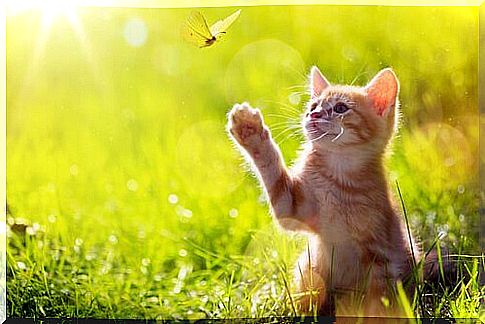
how cats hunt
When cats learn to hunt, they develop a very precise and organized technique. First, they locate prey. Then they do various maneuvers to get close to her, such as lying down and moving stealthily so they can go unnoticed. Then, they retract their hind legs when they get close enough to the prey and finally sprint or leap to capture the victim.
Cats are ‘equipped’ with a very sensitive sense of hearing and can identify the noises and sounds produced by their prey. Sometimes they can hear them from miles away.
It is recommended that you prevent your kitten from going too far for the first few days of hunting. You can use equipment to track his movements so you can easily find him when your hunting expeditions get too long.
Cats’ vision allows them to link image to sounds, while smell seems to play a minor role. The sense of taste is complementary to the other senses, and helps cats choose the most appetizing prey, rather than bitter insects.
Hunting is natural and controversial
The behavior that drives cats to hunt has long benefited us by keeping rodent populations under control. However, these days, predation by cats has never been so controversial.
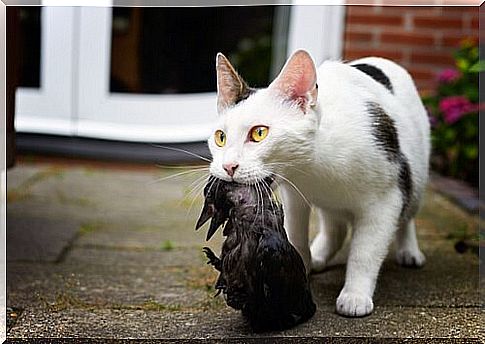
As we expand into sensitive habitats, we take our cats with us, and when they do what’s natural, they provoke a furious debate, especially when their prey is birds.
It is worth noting, however, that some biologists indicate that wild cats survive primarily from theft, not hunting. They even point out that when they hunt, their prey is more often an unwanted mouse rather than a rare bird.
However, any bird is too much in the eyes of animal lovers, and the debate over free-ranging cats shows no signs of calming down in the future. And so will the debate about keeping cats indoors.
Hunting with the fishing technique
Fishing also requires skill and high doses of patience. Normally, the cat waits in a place a little further away until the right candidate shows up; then he uses his paw like a spoon to pull the fish out of the water. In shallow water, the cat can use both legs to jump and grab the fish.
Not all cats are able to perfect their fishing technique, probably due to the difficulty of visual contact with the water. But even kittens who live in dry places use the spoon technique to ‘fish’ in some hole where something delicious can come out.
